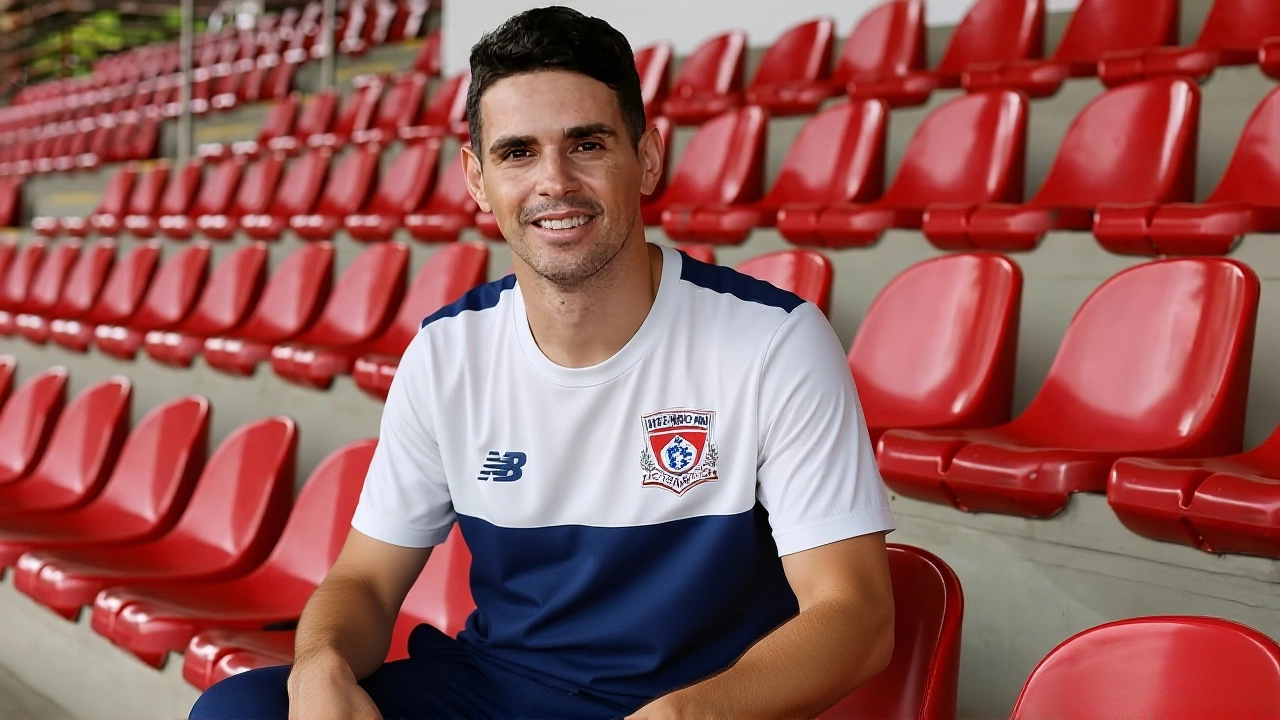When Oscar dos Santos Emboaba Júnior, attacking midfielder of Brazil confirmed a three‑year deal with São Paulo FC, fans realised a decade‑long dream was finally coming true. The 33‑year‑old, who spent the last eight seasons with Shanghai Port in the Chinese Super League, said the move was driven by family, not money. He’ll swap a €24 million‑a‑year paycheck for roughly €2.3 million a season, but the emotional payoff, he says, outweighs the financial hit.
A homecoming after eight years in China
Oscar’s contract with Shanghai Port expires at the end of September 2025. Rather than renewing, he opted for a free transfer back to the club where his professional career began: São Paulo. In a candid interview with Folha de S. Paulo from his Shanghai apartment overlooking the Huangpu River, the midfielder explained, “I love Shanghai, but it’s just too far away from home for us. My mom is getting older, my sisters are having babies. We want to be closer to home.”
That window view, complete with the river’s neon reflection, made the decision feel almost cinematic. “I’m happy to be back in Brazil and to be able to play for São Paulo, the club where I grew up,” he added, his voice wavering with both relief and nostalgia.
Oscar’s Chinese chapter: stats, salaries, and silverware
During his eight‑year spell, Oscar became the longest‑serving foreign player in the league, an era marked by record‑breaking contracts and an ever‑tightening salary cap. The Brazilian earned the world’s third‑highest annual salary – €24 million – a figure that sat comfortably above the Chinese Football Association’s €3 million foreign‑player ceiling introduced in 2020.
- 248 appearances across all competitions for Shanghai Port
- 77 goals and 141 assists
- Three Chinese Super League titles (2018, 2020, 2021)
- €24 million annual wage, exempted from the 2020 cap
Those numbers aren’t just bragging rights; they underline why Oscar’s departure feels like the end of an era for the Shanghai club. The midfielder’s influence helped the team transition from a regional contender to a domestic powerhouse.
The emotional pull: family and personal reasons
Even elite athletes sometimes find that money can’t buy the things they truly miss. For Oscar, the missing pieces were everyday moments – a birthday with his mother, the first steps of a new niece, the familiar scent of Brazilian coffee. “We can’t stay here forever,” he said, “My mom is getting older, my sisters are having babies. We want to be closer to home.”
His decision mirrors a growing trend among South American players who, after lucrative stints in Asia or the Middle East, return home to finish their careers where it all began. It’s a move that resonates with supporters who value loyalty over profit.
What São Paulo gains from the return
Beyond the sentimental value, São Paulo secures a player who still boasts elite technical ability. At 33, Oscar’s vision, passing range, and knack for arriving late in the box remain sharp. The club’s sporting director, André Guilherme, described the signing as “a blend of experience and heart that will lift the dressing‑room.”
São Paulo’s current midfield is a mix of youth prospects and seasoned veterans. Adding Oscar provides a mentorship figure for emerging talents like Gabriel Veron and Marcos Paulo. His knowledge of high‑pressure environments – from the Premier League to the Asian Champions League – could be the missing ingredient in the club’s quest for a Série A title.
Looking ahead: Oscar’s role and Brazil’s midfield landscape
Internationally, Oscar’s return sparks speculation about a possible recall to the Brazil national team. Though he has not featured since 2016, a strong season with São Paulo could revive conversations among Seleção coach Tite. The midfield pool is competitive – with players like Casemiro, Lucas Paquetá, and Everton Ribeiro – yet Oscar’s versatility might earn him a place as a seasoned option for friendlies or Copa America qualifiers.
For the club, the next three years are a test of patience. Oscar’s reduced salary, now €2.3 million per year, aligns with São Paulo’s budget, but the real investment is in his leadership on and off the pitch. If he can translate his China‑honed tactical awareness into decisive passes in the Brazilian league, the story could become a textbook case of a high‑profile player finding renewed purpose at home.
Key facts
- Player: Oscar dos Santos Emboaba Júnior
- New club: São Paulo FC (three‑year contract)
- Previous club: Shanghai Port (Chinese Super League)
- Salary change: €24 million → €2.3 million per year
- Career highlights: Premier League, Europa League, three Chinese titles

Frequently Asked Questions
Why did Oscar leave a €24 million salary in China?
Oscar said family considerations were the main driver. His mother is aging, and his sisters are starting families, so he wanted to be closer to home, even if it meant a substantial pay cut.
What does São Paulo expect from Oscar on the field?
The club hopes Oscar will provide creativity, experience, and leadership. He is expected to help break down defenses with his passing range and mentor younger midfielders aiming for national team selection.
Could Oscar be recalled to the Brazil national team?
While he hasn’t played for Brazil since 2016, a strong campaign with São Paulo could prompt coach Tite to consider him as a seasoned alternative for upcoming friendlies or Copa America qualifiers.
How many titles did Oscar win in China?
He collected three Chinese Super League crowns – 2018, 2020 and 2021 – and added appearances in the AFC Champions League, cementing his legacy as one of the league’s most successful foreign players.
What impact will Oscar’s return have on São Paulo’s title hopes?
His vision and set‑piece expertise could give São Paulo the edge in tight matches. Combined with a youthful squad, Oscar’s experience may translate into more consistent performances and a serious push for the Série A championship.
